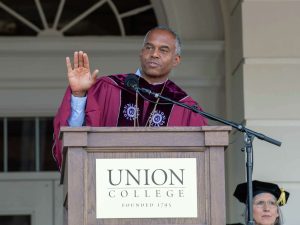Russian plane crash lands in Moscow, threatening Putin’s aviation dreams
May 16, 2019
Vladimir Putin has been looking to enter the civilian airline duopoly since 2006 when, as President, he nationalized United Aircraft Corporation (UAC) and told them to build a commercial jet.
UAC began development of a commercial jet and in 2007 it unveiled the Sukhoi Superjet (SSJ100), a fuel-efficient regional aircraft capable of carrying up to 98 passengers. About a year ago there were over 120 SSJ100s in operation with more than 460,000 logged flight hours, mostly operating for Russian airline companies. Notably a few were a part of Mexico’s Interjet Airlines fleet.
However, on May 6, Russia and Putin’s dreams faced a major setback when one of its Sukhoi jets caught fire and crash landed on the tarmac in Moscow, killing 41 of the 78 people on board. Aviation investigators are still trying to determine the cause of the fire.
Similar to Boeing’s two deadly accidents in the past year, there have been calls for the Sukhoi jets to be grounded. Less than 24 hours after the March 10 Ethiopian Airlines crash, Chinese officials ordered the grounding of all models in China, quickly followed by Russia and around 50 other countries.
However, since the aircraft mainly operates in Russia, there has been little foreign or domestic regulatory calls for grounding. Instead, the push for grounding mainly comes from the public in the form of an online petition, which more than 150,000 people have already signed. In the end, the grounding of Sukhoi jets will be unlikely. In the wake of the crash, Yamal Airlines of Russia cancelled its order for 10 SSJ100s, worth up to $500,000,000.
Even before the crash, UAC and their SSJ100 jets faced major issues. Over the past year, airlines have raced to pull SuperJets from service and to cancel future orders due to a spotty record of quality, performance, passenger comfort and mechanical reliability.
Recently, CityJet of Ireland has dropped plans to operate 15, Brussels Airlines of Belgium four, and Adria Airways of Slovenia 15, at a total cost to Sukhoi of up to $1.5 billion at list prices. In addition to the significant problem with spare parts, the entire Superjet 100 fleet globally has been grounded twice temporarily in 2017 and 2018 while engineers worked on a fix for design problems with the plane’s horizontal stabilizer.
The company had aimed to expand its global reach by increasing global revenue from 17 percent in 2017 to 40 percent by 2025. So far, the company has only grabbed about 20 percent of the global market or regional jets mainly competing evenly with Canada’s Bombardier and Brazil’s Embraer. Despite the fact that UAC’s jets were cheaper than either Bombardier or Embraer, foreign carriers often steered clear of the Russian jets due to the lack of a global maintenance






